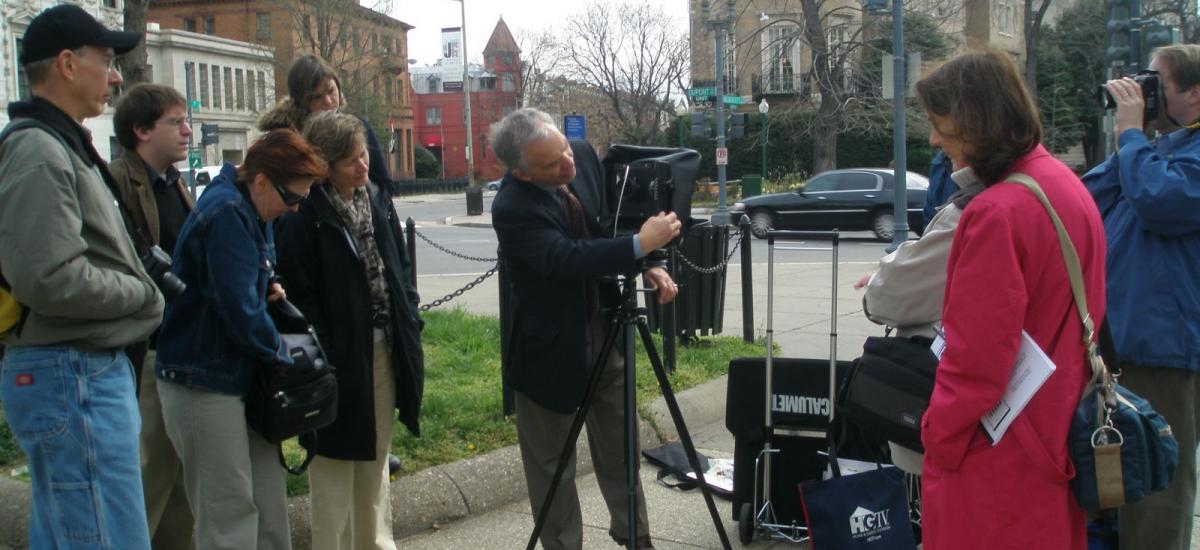
Overview
Understanding subject matter, composition, technique, and equipment are critical to a successful photodocumentation project. Review the use of digital and film photography techniques for mitigation documentation and for National Register nomination packages, with emphasis on survey work, presentations, publications, and the web. Compare camera formats (35 mm, medium, and large for film; 35 mm equivalent and digital backs for digital) and digital vs. film output and storage options. Discuss requirements for reviewing agencies and archival processes. Explore issues involved in contracting and supervising photographic projects.
Faculty
William Lebovich, architectural historian and photographer; author of How to Photograph Historic Structures and Sites; Design for Dignity, America’s City Halls; and chapter on archival, large-format photography for Recording Historic Structures
Evaluation Comments
"Well balanced presentation, information/technical, process, aesthetics, especially lighting inside and out."
"[The seminar was] very informative and exciting. I wish it were more than two days."
"Many helpful tips on organization, photo sequence, and composing a photo to document the intended subject."
"[I learned] how lighting plays an important role in setting photos to display a focal point of historical preservation."
"The field excursions and hands-on exercises were excellent in demonstrating aspects of skill, equipment, and challenging problems and solutions to those."
Participants
Photographers; cultural resource managers; architectural historians; preservation architects; archaeologists.
Customized Training
This in-person seminar is currently not scheduled, however NPI offers customized training to meet specific organizational needs at a location and time convenient for the sponsor. In-person seminars, online, on-demand courses, and/or webinars may be based on current NPI offerings or new preservation-related training may be developed.
Questions?
Contact NPI at 703.765.0100 or info@npi.org.
